Minimal evolutions have not erased some persistent violations of women’s rights.
06 February 2023 - 24 February 2023
14 February 2023

By Sasha Granelli / GICJ
Executive Summary
On the 14th of February 2023, during its 84th Session, the Committee on the Elimination of Discrimination against Women discussed the fourth periodic report of the Kingdom of Bahrain (CEDAW/C/BHR/4) submitted in March 2018. This report covers the implementation of the Convention on the Elimination of All Forms of Discrimination against Women (CEDAW) in the country after the third periodic review that took place in 2011.
As part of the interactive dialogue, Committee members raised several issues, such as: discrimination against women, limited support to NGOs, the persistence of traditional stereotypes on women, the problem of stateless children, and rights of women migrants’ workers.
Geneva International Centre for Justice (GICJ), calls on Bahrain to fully implement the Convention and to expedite the review of its current reservation to the Convention. As the Committee Experts underlined, important concerns were raised about substantive inequalities between women and men, the pervasive underrepresentation of women in the society and discriminatory practices and the underrepresentation of women in some areas of society. We condemn the maintenance of discriminatory stipulations against women regarding the transference of nationality to their children that lead to stateless children but also the lack of measure to condemn violence against women. Accordingly, GICJ supports those calls underlining that Bahrain must take measures to ensure gender equality in all fields of the society.
Background
The Committee is a body of 23 independent experts on women’s rights that monitors the implementation of the Convention on the Elimination of All forms of Discrimination against Women (CEDAW). CEDAW is a treaty that helps women around the world to bring about change in their daily life. In countries that have ratified the treaty, CEDAW has made important changes on the area of violence, poverty, discrimination, property rights and others. The country in question here presents a report following consultation with different stakeholders, civil society, and NGOs. The Kingdom of Bahrain ratified CEDAW on June 18, 2002.
On the 14th of February 2023, during its 84th Session, the Committee discussed the fourth periodic report of the Kingdom of Bahrain (CEDAW/C/BHR/4) submitted in March 2018. This report covers the implementation of the CEDAW in the country after the third periodic review that took place in 2011.
The progress achieved by the State party
Bahrain reaffirms its commitment to the CEDAW, on the basis of its constitutionally enshrined obligation to achieve equality of rights, duties and opportunities between men and women in a manner consistent with Islamic sharia.
The National Action Charter, the Constitution, and relevant legislation all guarantee legal protection for human rights in general and for women’s rights in particular. The National Action Charter stipulates the principle of the equality of all citizens before the law and in respect of rights and duties. The Constitution states that all citizens, both men and women, are equal.
Statement by The Kingdom of Bahrain
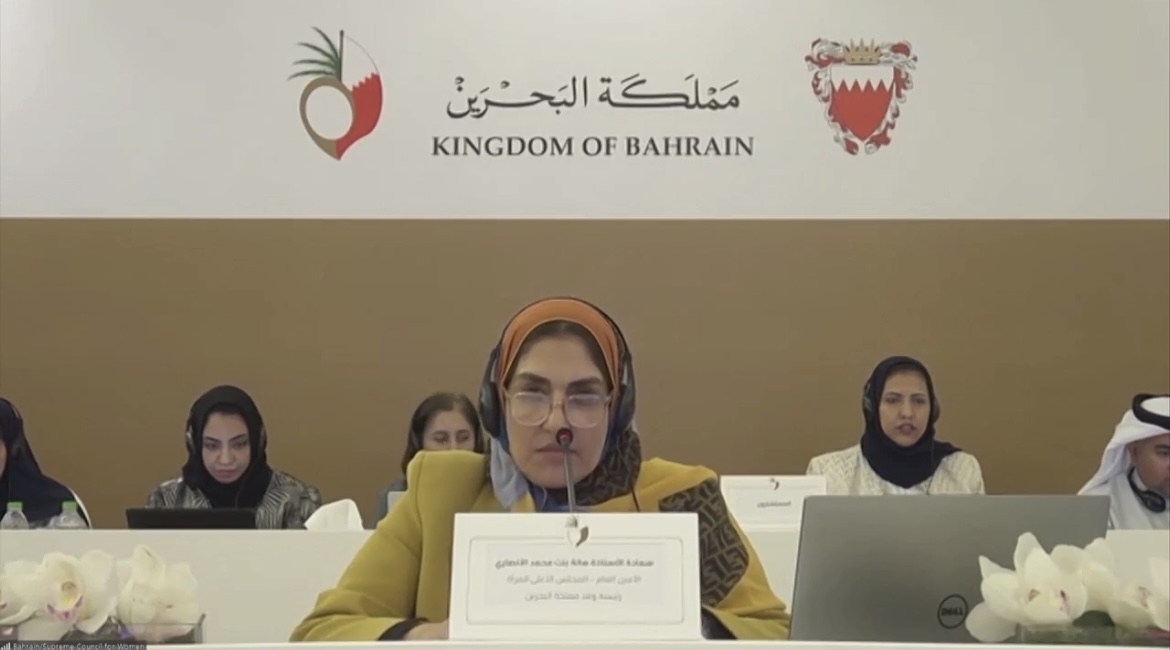 The delegate of Bahrain, Her Excellency Hala Mohammed Jaber Al Ansari, Secretary General of the Supreme Council for Women of Bahrain, reaffirmed that the Kingdom of Bahrain is committed to the CEDAW. They emphasise that Bahrain has made multiple strands of progress in the field of women’s rights by adopting legislation that guarantees legal protection for human rights in general and for women’s rights in particular.
The delegate of Bahrain, Her Excellency Hala Mohammed Jaber Al Ansari, Secretary General of the Supreme Council for Women of Bahrain, reaffirmed that the Kingdom of Bahrain is committed to the CEDAW. They emphasise that Bahrain has made multiple strands of progress in the field of women’s rights by adopting legislation that guarantees legal protection for human rights in general and for women’s rights in particular.
Bahrain’s report highlighted a multitude of different items, including that following the act of accession, the CEDAW has become part of its domestic law. Accordingly, the definition of discrimination as contained in Article 1 is held to be, together with constitutional provisions and other relevant laws, a fundamental reference for the prevention of discrimination.
Therefore, the authorities in Bahrain are careful to ensure that legislation is aligned with the Constitution. Moreover, The Kingdom of Bahrain express its efforts to overcome stereotypes of gender roles and to empower women through legislations, prevention and education, build legislation that criminalise violence against all women same for expatriate workers who enjoy the same protection under the Bahraini Criminal Code as Bahraini male and female workers and ensure the adoption of further legal measures on behalf of the children of Bahraini women married to foreigners.
Interactive Dialogue
Implementation of the Convention
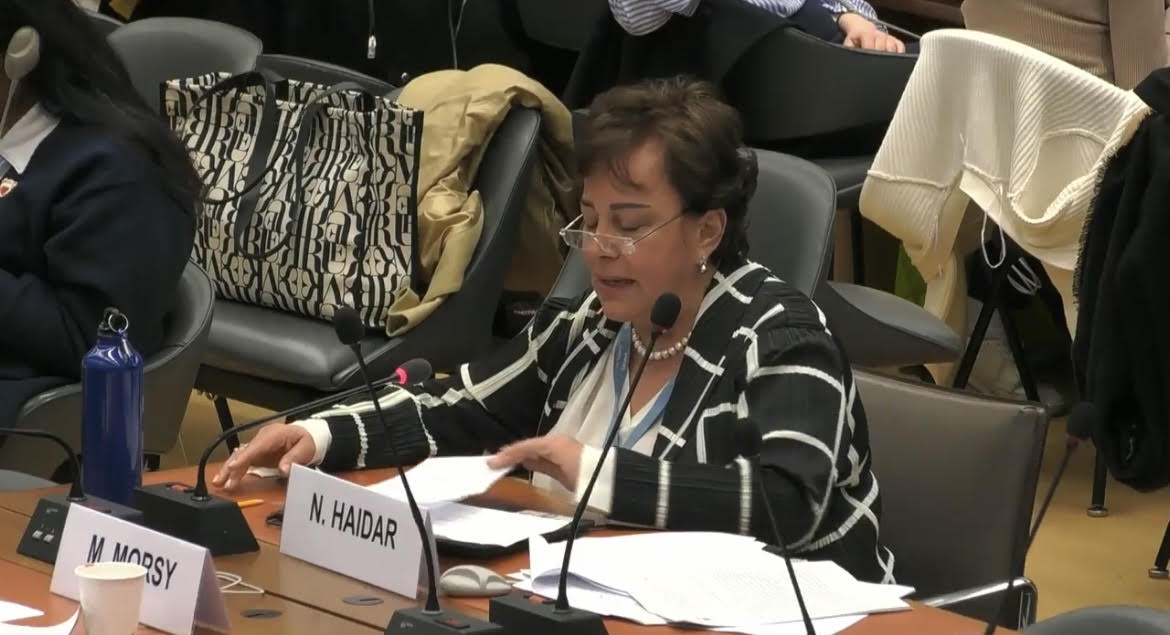 Nahla Haidar, member of the Committee, congratulated Bahrain for its efforts and encouraging statistics in the field of human rights. Despite this, the Committee member also raised concerns about the definition of discrimination that is part of Bahrain’s domestic law wanting to ensure that this definition is in line with CEDAW. Moreover, the Committee highlighted the fact that Bahrain still maintains its reservations under article 2 and 16 of CEDAW. The Committee considers that these reservations must be removed as the justification of these reservations given by the State based on Islamic Sharia can be overcome like other States have done.
Nahla Haidar, member of the Committee, congratulated Bahrain for its efforts and encouraging statistics in the field of human rights. Despite this, the Committee member also raised concerns about the definition of discrimination that is part of Bahrain’s domestic law wanting to ensure that this definition is in line with CEDAW. Moreover, the Committee highlighted the fact that Bahrain still maintains its reservations under article 2 and 16 of CEDAW. The Committee considers that these reservations must be removed as the justification of these reservations given by the State based on Islamic Sharia can be overcome like other States have done.
Bahrain’s delegation reiterated that it fulfils its obligations under articles 2 and 16 of the CEDAW in a manner compatible with Islamic Sharia. Therefore, the delegation confirms that its reservation to those articles is maintained only inasmuch as they conflict with Islamic sharia and it does not detract from the essence of the CEDAW or from the principle of equality of rights and duties between men and women.
Moreover, Bahrain states once again that, following the act of accession, the CEDAW has become part of its domestic law. Accordingly, the definition of discrimination as contained in article 1 is held to be, together with constitutional provisions and other relevant laws, a fundamental reference for the prevention of discrimination and is in full accordance with the CEDAW.
The Committee pointed out, once again, that those reservation attempt negatively to the substance of the Convention and ask Bahrain to seriously reconsider these reservations, without delay, with a view to withdrawing them or narrowing their scope, in line with the CEDAW, within an established time frame and with the full participation of women’s civil society groups.
Bahrain highlighted that article 4 of the Constitution states that equality and equal opportunity among citizens are the mainstays of society and are guaranteed by the State. They point out that Bahraini women have been through the traditional phases of empowerment and acquisition of rights to become important partners in every aspect of development. The delegation emphasised that the Kingdom of Bahrain is keen to engage with international instruments relevant to the status of women.
The delegation said that the national committee for monitoring and implementing the national framework for the integration of women’s needs into the Government’s programme of action is working on this issue. This work has led to the drafting of a national report on gender balance in the government sector and the creation of the national gender balance observatory, in partnership with government and official bodies
Violence against women and familial inequalities
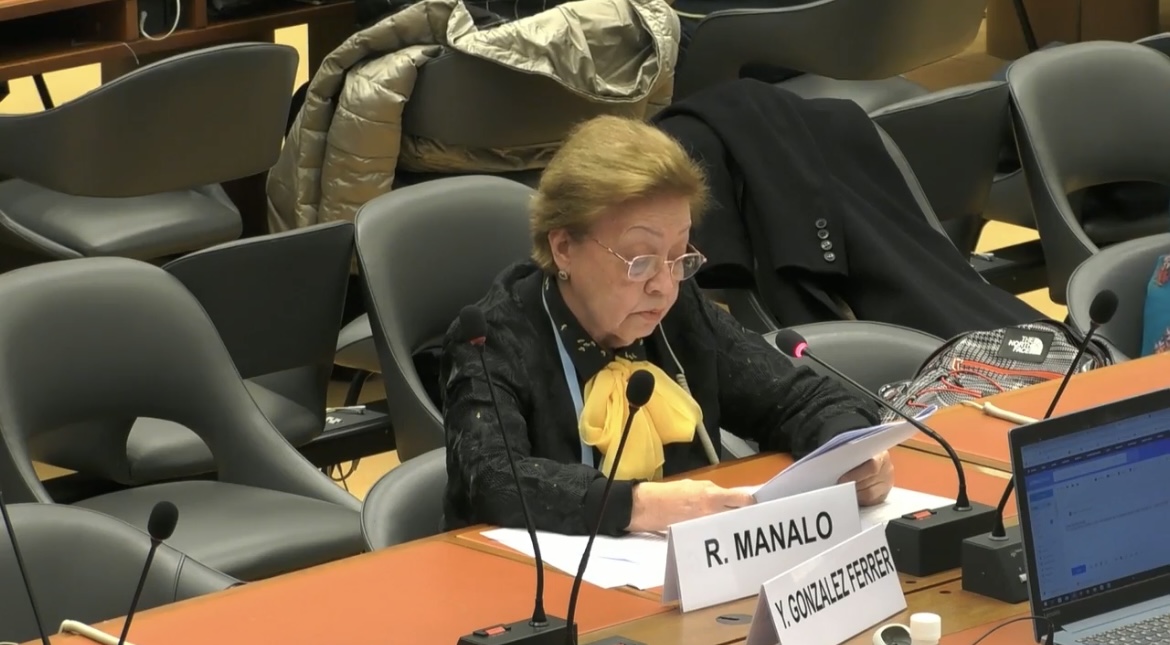 In the field of violence against women, Rosario Manalo, a member of the Committee, recommended that measures be taken to ensure that the lack of reported cases of violence or human trafficking is not due to victims’ fear of retribution or a sign of lack of confidence in the police. In the same line, the Committee’s call Bahrain to take measures to ensure access to legal aid for victims and to the necessary assistance and protection and ensure that perpetrators are held accountable.
In the field of violence against women, Rosario Manalo, a member of the Committee, recommended that measures be taken to ensure that the lack of reported cases of violence or human trafficking is not due to victims’ fear of retribution or a sign of lack of confidence in the police. In the same line, the Committee’s call Bahrain to take measures to ensure access to legal aid for victims and to the necessary assistance and protection and ensure that perpetrators are held accountable.
The Committee also asked the State to take appropriate measures to ensure that women have access to the same rights and services as men such as medical treatment or nationality without the consent or permission of any other person.
Furthermore, regarding underage marriage, the Committee recommended to Bahrain to raise the minimum age of marriage for girls to 18 years, in line with the one for boys.
The delegation of Bahrain highlighted its Domestic Violence Act that defines domestic violence and includes provision for protection orders for the victim. The delegation highlighted that the Institute for Judicial Studies organises integrated training courses and specialised workshops on the topic of domestic violence.
Concerning the issue of human trafficking, the Kingdom of Bahrain emphasises periodic reports concerning shelters, in particular reports concerning the shelter for the protection of victims of human trafficking. In the same way, they ensure that the shelter for victims of trafficking in persons provides victims with the necessary legal aid.
One of the important issues raised by the Committee was nationality. In this field, the delegation points out that the Bahraini Nationality Act stipulates that citizenship shall be granted to the children of Bahraini women in cases specified in order to avoid stateless children. The delegation also pointed out the proposed amendment to the Nationality Act. On that point, it is important to remember that this Act is still being discussed since 2014. This fact raises concerns for the Committee as it seems that Bahrain is trying to avoid validating this amendment.
Concerning underage marriage, the delegation ensures that the law does not permit the marriage of persons under 16 years of age but they also raise some vague exceptions to this law that seems difficult to explain and justify for the delegation.
On the topic of equality inside the family and with regard to the adoption of legislative measures to remedy the potentially adverse effects of existing rules concerning property distribution and ownership, the delegation noted that each spouse is financially independent. In fact, all women in Bahrain are not really independent as raised by the Committee as women still need the approbation of a man for some basic tasks.
Labour laws
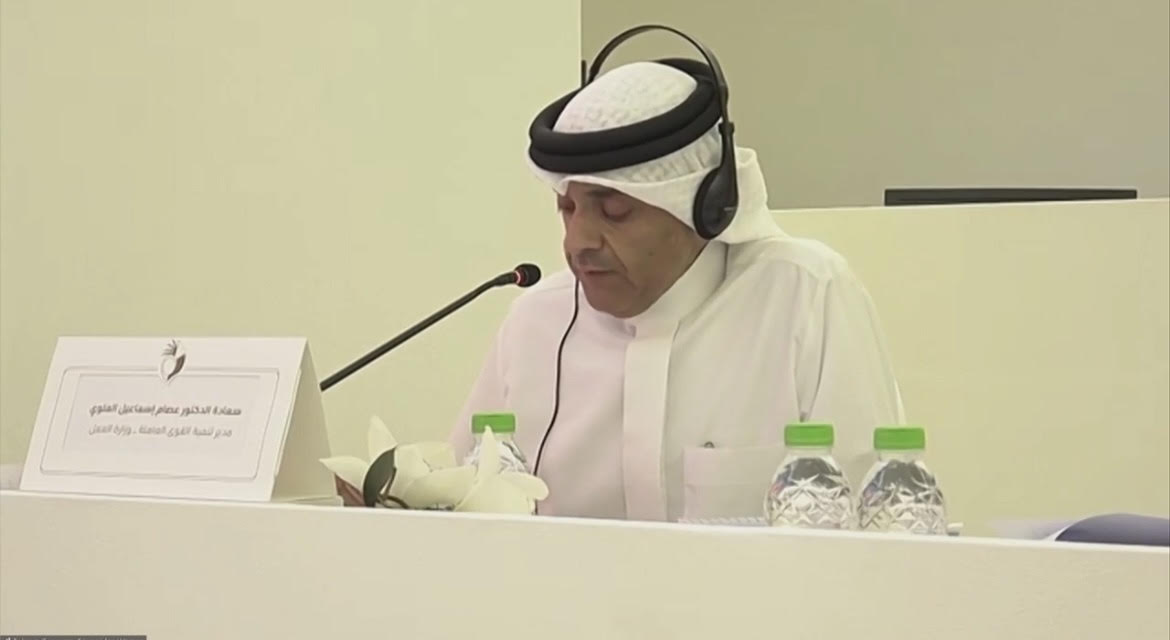 During the session, the Committee raised an important issue on equality for women at work, especially for migrant workers. The Committee recommended that the Kingdom take all appropriate measures to expedite the adoption of the draft Labour Code and to ensure that it covers all migrant domestic workers. They also call to strengthen the State’s efforts to ensure that migrant domestic workers have adequate legal protection, are aware of their rights and have access to legal aid.
During the session, the Committee raised an important issue on equality for women at work, especially for migrant workers. The Committee recommended that the Kingdom take all appropriate measures to expedite the adoption of the draft Labour Code and to ensure that it covers all migrant domestic workers. They also call to strengthen the State’s efforts to ensure that migrant domestic workers have adequate legal protection, are aware of their rights and have access to legal aid.
The Committee also asked Bahrain to prosecute and sentence violent, abusive and exploitative employers and recruitment agents. Committee members recommended Bahrain to take appropriate measures to ensure that female migrant workers have access to free emergency medical services.
To answer these issues, the Kingdom of Bahrain started by reiterating that there are no so-called migrant workers in the kingdom, there are only “expatriate workers”.
They emphasise that the Labour Code for the Private Sector contains regulations and measures concerning domestic workers that address disputes with the employer. The Committee insisted with questions on this topic to know if there are regulations and measures concerning migrant workers for their access to other basic needs such as health care. This was not answered by the delegation.
Regarding measures to support and protect expatriate women domestic workers from violence, abuse and exploitation, the delegation underlined that expatriate women enjoy the same protection under the Bahraini Criminal Code as Bahraini male and female workers. The delegation of Bahrain said that the Criminal Code is applicable to all perpetrators of violence in the workplace or in other locations.
The delegation added that more generally, academic and technical educational opportunities are available on an equal basis to both genders. They also pointed out the adoption of a number of measures aimed at bridging the wage gap between men and women and guaranteeing equal remuneration. Here the Committee raises once again the point about underrepresentation of women in a lot of fields of society like politics, media to know when those measures to bridging the wage gap between men and women will have a real effect.
Discrimination against women in Civil Society
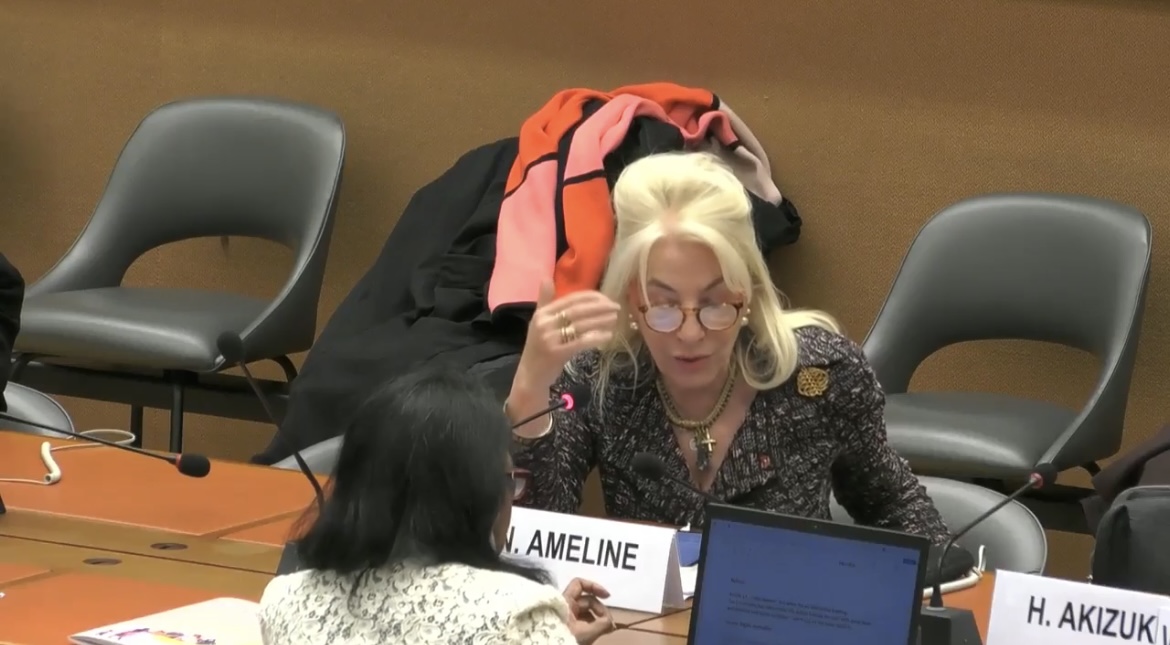 Nicole Ameline, a Committee member, expressed concerns about the treatment reserved to civil society and NGOs members in general and especially the limited support provided by the Supreme Council for Women to non-governmental organisations.
Nicole Ameline, a Committee member, expressed concerns about the treatment reserved to civil society and NGOs members in general and especially the limited support provided by the Supreme Council for Women to non-governmental organisations.
Despite this, the Committee expressed its appreciation of the efforts by the State party to re-examine the stereotypes and welcomed the efforts of Bahrain in partnership with the media, to increase the participation of women and to show a positive and diverse image of women in public life. However, the Committee remained concerned about what it described as the persistence of traditional stereotypes regarding the roles and responsibilities of women and men in society. The Committee raised concerns about de facto or substantive equality between women and men in areas where women are underrepresented or disadvantaged, including in political life, decision-making bodies and the private sector.
The Committee reiterated its previous recommendation to take measures, including temporary special measures, to increase the number of women in political and public life at all levels. The Committee recommended that the Kingdom promote women’s access to leadership positions, especially in the parliament and local councils, and to decision-making positions but also in the family sphere in order to face inequalities in property distribution and ownership. They point out the fact that women face excessive supervision and lengthy registration procedures.
To ensure changes, the Committee recommended the state to take further steps to review the draft law on civil society and institutions. They also recommended that the Council should strengthen its cooperation with all stakeholders, especially by supporting women’s civil society groups and non-governmental organisations.
In that field, the delegation assures that the Council continues to cooperate and coordinate with civil society organisations in general and, in particular, with women’s associations and committees and the Bahrain Women Union, through memorandums of understanding and joint projects and programmes. They assured that it gives individuals the freedom to express their opinion, and all citizens are free to establish associations so that women are represented in the National Consensus Dialogue.
The Kingdom of Bahrain also ensures that there are no so-called women human rights defenders but civil society institutions regulated by law. The delegation ensures that all necessary legislative and executive measures have been taken for the purposes of the investigation of intimidation and ill-treatment against human rights defenders. They note that the authority in charge of this issue is an independent agency that ensures the respect of human rights for all.
On this point, the Committee was concerned about the reality of the independence of this agency and raised some cases of violations of human rights defenders that are in detention and have been reported to the agency but never investigated.
Regarding these allegations, the Kingdom declared that women human rights defenders were in fact found guilty of criminal offences following due process of law and a fair trial, during which they enjoyed the safeguards guaranteed by law. The delegation clearly denied the accusations of violence and added that the revocation of nationality was pursuant to judicial ruling in order to justify the act to create stateless people.
Position of Geneva International Centre for Justice
𝐆𝐞𝐧𝐞𝐯𝐚 𝐈𝐧𝐭𝐞𝐫𝐧𝐚𝐭𝐢𝐨𝐧𝐚𝐥 𝐂𝐞𝐧𝐭𝐫𝐞 𝐟𝐨𝐫 𝐉𝐮𝐬𝐭𝐢𝐜𝐞 (GICJ) welcomes the efforts made by the Kingdom of Bahrain to empower women in society. However, as the Committee highlighted, concerns remain about the discriminatory practices and the underrepresentation of women in some areas of society. We condemn the maintenance of discriminatory stipulations against women regarding the transference of nationality to their children that lead to stateless children but also the lack of measure to condemn violence against women. Therefore, we call on Bahrain to take important steps to ensure equal rights for all women and end the persistence of traditional stereotypes.
CEDAW84 Bahrain Justice HumanRights WomensRights GirlsRights Geneva Geneva4justice GICJ Geneva_International_Centre_for_Justice




